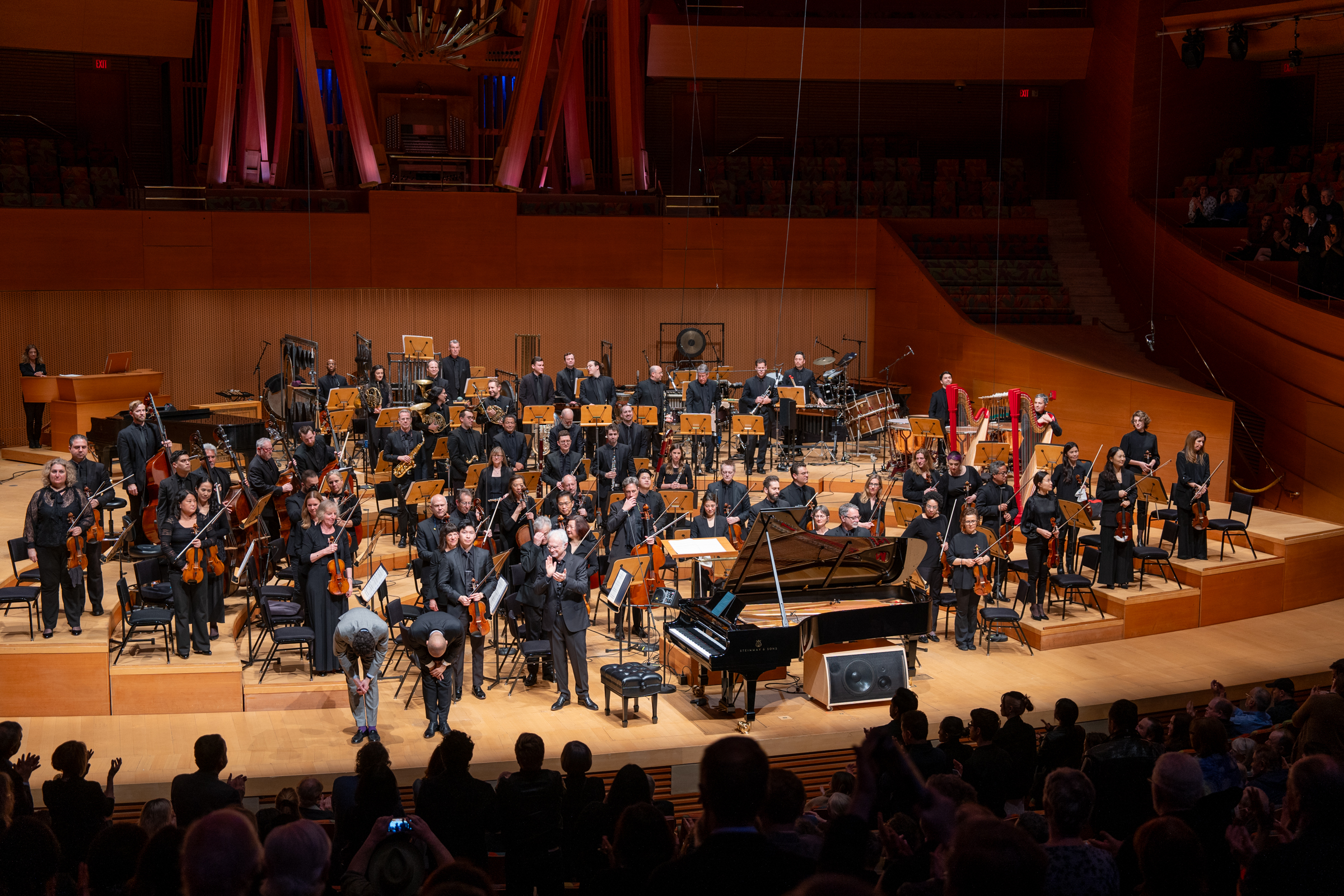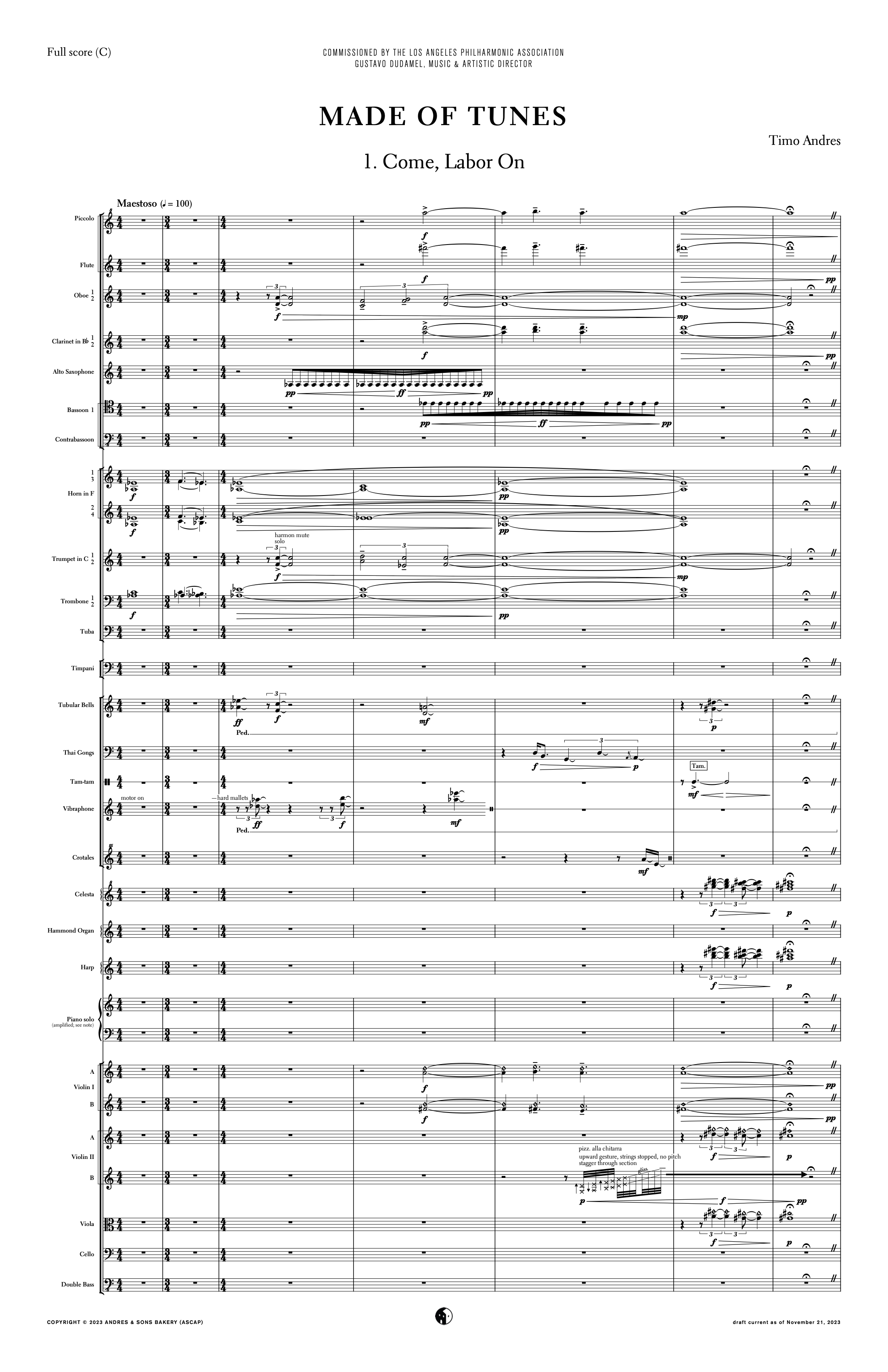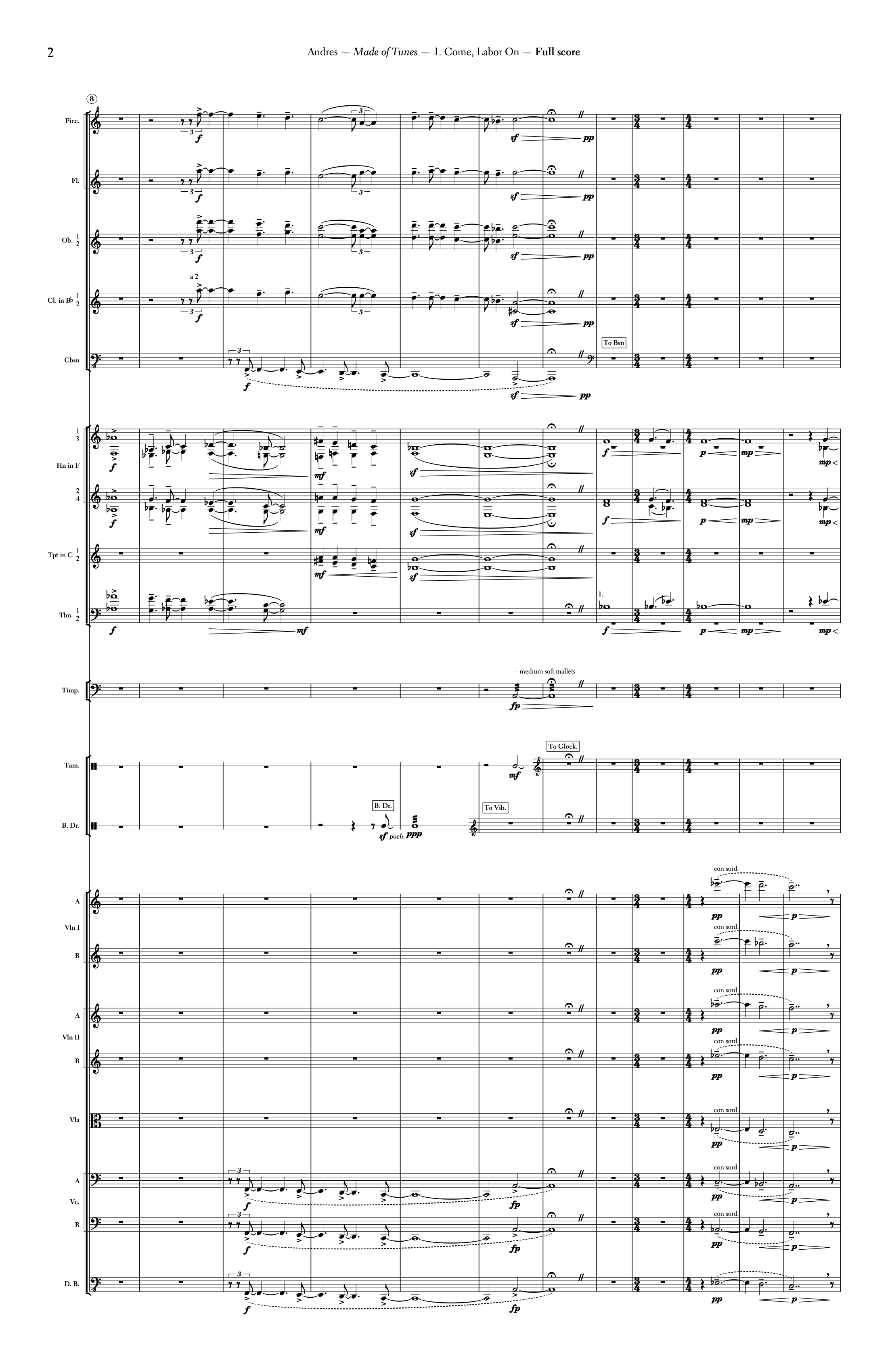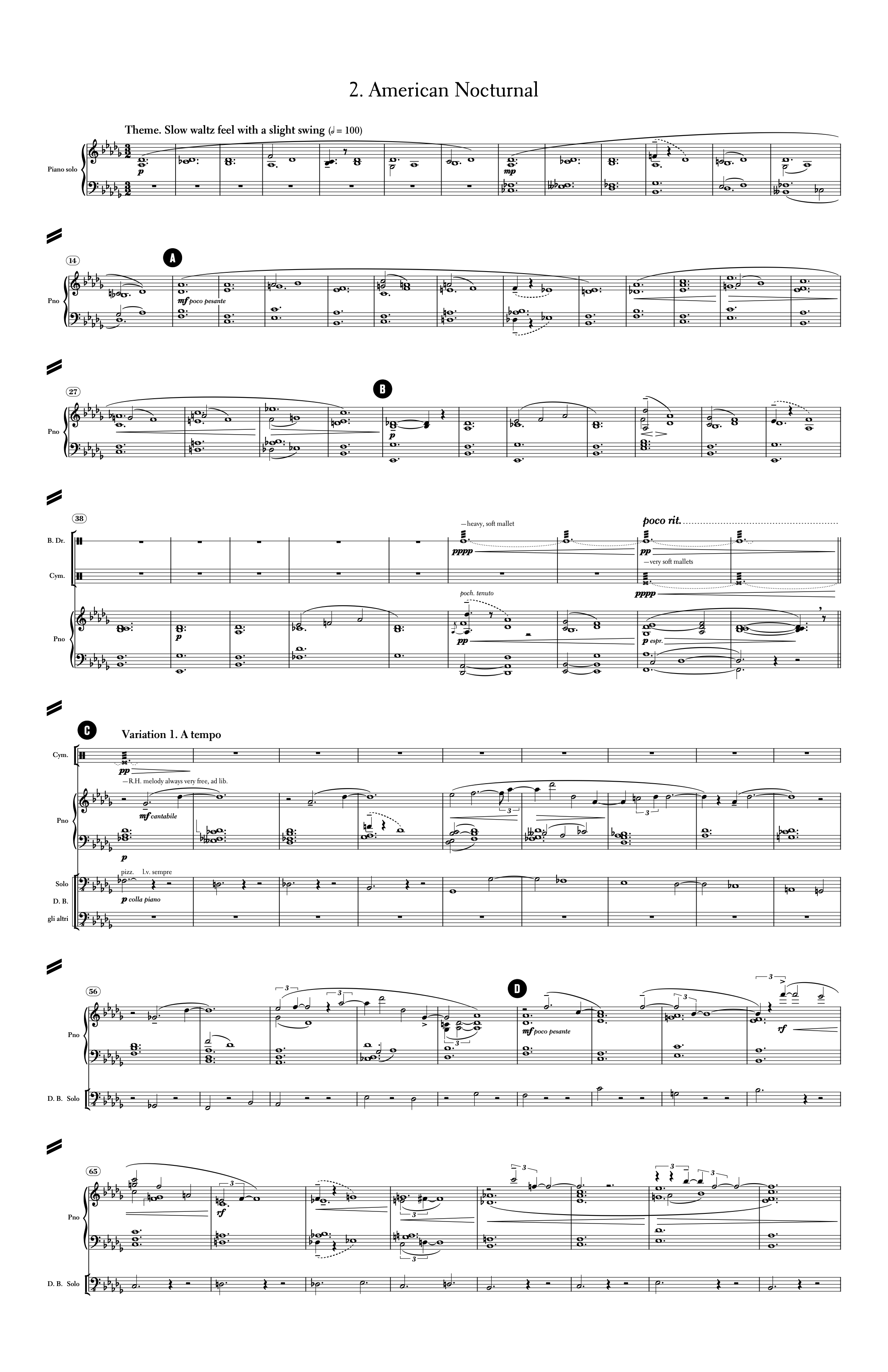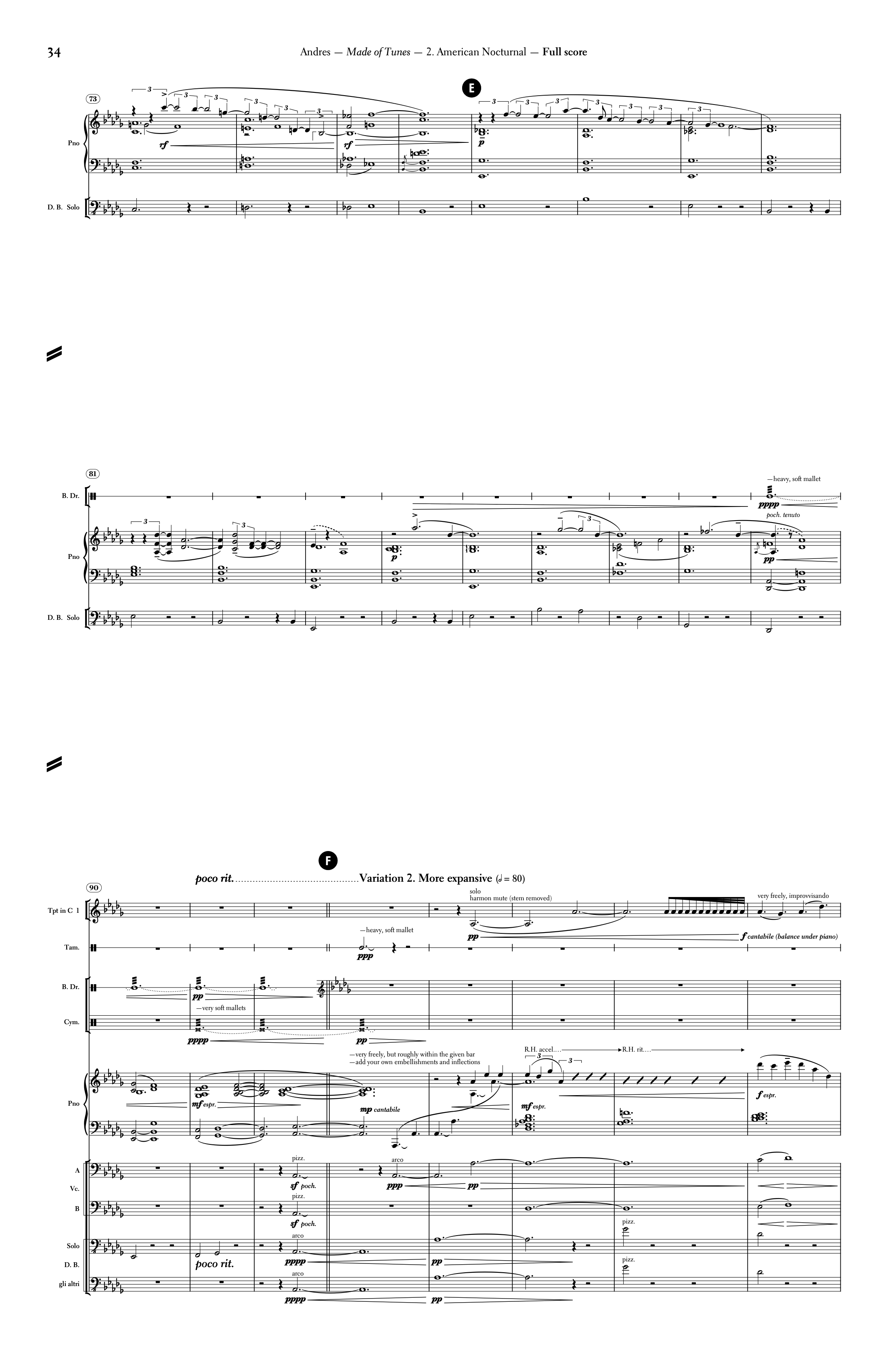Note
You’ll often hear composers speak of the “materials” of a piece. The word is useful in that it encompasses everything from notes and harmonies to timbres and techniques. It’s also a dodge; we use it to cast our music in a more objective light, as if it were simply something to be assembled like flat-packed furniture. So the “tunes” in this piece are a corrective—a challenge to myself to come clean about my intentions and influences, rather than approach them sideways as pure abstractions.
Primary among those intentions was to write a concerto that would speak to the style and expertise of its soloist, the pianist Aaron Diehl. Aaron is a musician who takes a wide view of American musical history, a tradition that is, in a sense, made of tunes: early hymnody, folk songs, parlor songs, work songs, the blues and ragtime are the roots of its family tree. I’ve always been fascinated by this protean admixture, in which sacred and secular, art and kitsch, mainstream and recondite bump up against each other. (The title Made of Tunes is drawn from the song The Things Our Fathers Loved by Charles Ives, a composer who shared this fascination.)
Aaron’s part includes opportunities for improvisation, sections in which I pass him a tune, or a rhythm, or a harmony, and he responds with something I wouldn’t have thought of. The boundary between the piece’s improvised and notated music is often intentionally blurry, the soloist’s excursions catching the tail of an idea and elaborating further, before handing it back.
The first movement, Come, Labor On, counterposes hymnody and motor. Taking its main tune and title from Thomas Tertius Noble’s hymn (which I remember singing as a child—one of my first experiences of four-part harmony), the form is a slow-fast-slow palindrome. After a stately orchestral introduction, the soloist instigates rhythmic drama, introducing an ostinato pattern perforated by emphatic cross-rhythms. After a huge orchestral pileup, under which organ and brass play an entire hymn verse in elaborate harmony, the movement ends with a piano-led recapitulation of the introduction.
The second movement, American Nocturnal, is a series of six variations on an original theme, derived from smashing the melody notes of the hokey patriotic tune America the Beautiful into a series of expanding and contracting intervals. (The original tune is never heard.) The movement is dominated by expressive exchanges between piano and wind soloists. Each variation ends with a low orchestral rumble, longer and more threatening with each iteration, until, in the sixth variation, it overwhelms the soloist, who finishes the piece in a ruminative daze, accompanied by distant saxophone echoes of the first movement.
Purchase
-
Made of Tunes score, print edition
-
Made of Tunes score, PDF edition
57 pages, 11×17 format. Includes full score only. Parts are available for rental; please email rentals@andres.com for a quote.
